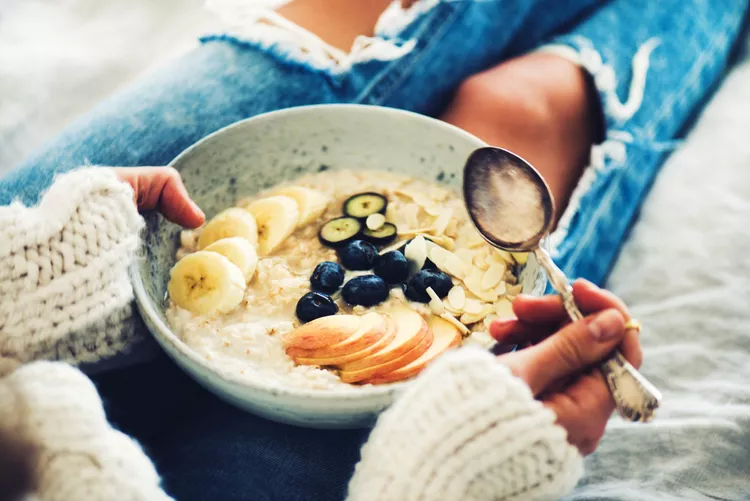Good breakfast options include fruit, whole grains, yogurt, eggs, and nut butter. These foods give you energy, keep you full, and help you make healthy choices throughout the day. Eating enough carbs, protein, fats, vitamins, minerals, and water gives your body the energy it needs. “You want to combine healthy carbs and fiber with protein,” says Erica Giovinazzo, MS, RDN, a registered dietitian in New York. The good news is, there are plenty of tasty and simple breakfast choices. Here are 20 healthy breakfast ideas and tips from nutrition experts to make them even better.
Drinks

It’s important to stay hydrated throughout the day. Drinking water helps keep your body temperature steady, keeps your joints moving, and protects your spine. Water also helps get rid of waste and prevents dehydration, which can make you feel tired. Coffee and tea can be healthy drinks to add to your breakfast too. Choose filtered, light-roasted coffee and unsweetened tea for the best health benefits. These drinks are good because they have less sugar. If you add cream, sugar, or syrup, use just a little. Drinking enough water, coffee, and tea helps you stay hydrated and feel your best all day.
Coffee

Coffee offers several health benefits. Studies suggest that drinking coffee may lower the risk of chronic illnesses like certain cancers, liver disease, Parkinson’s disease, and type 2 diabetes. These health benefits are partly due to the compounds found in coffee. Caffeine also enhances physical performance, which is why many people drink coffee before exercise. Drinking coffee in moderation can help you stay healthy, energized, and focused throughout the day. The antioxidants and other compounds in coffee contribute to its protective effects on the body. In addition, coffee can improve mental performance and physical energy. Overall, coffee is a great way to support your health while boosting your energy.
Tea

There are two types of tea: true teas and herbal teas. True teas, like black, green, and white tea, have caffeine and antioxidants. Herbal teas don’t have caffeine and can help with things like reducing inflammation and easing nausea. Both types of tea are good to drink with breakfast, so you can pick the one you like best. Green tea, a true tea, can help you focus better, ease headaches, and even help with weight management. Whether you choose true tea or herbal tea, both are healthy options for your morning.
Fruits
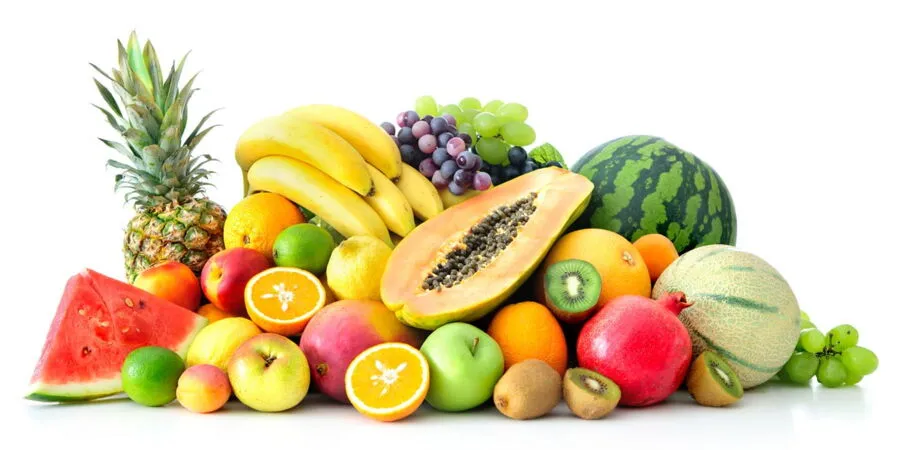
Fruits have important nutrients like potassium, fiber, vitamin C, and folate that help keep you healthy. They support your heart and muscles. The Department of Agriculture suggests filling half your plate with fruits and vegetables at every meal, including breakfast. Try to eat two to three servings of fruit each day. One serving is one cup of whole fruit or one cup of 100% fruit juice. Eating fruits is an easy way to stay healthy. You can enjoy them fresh, in smoothies, or as juice.
Bananas
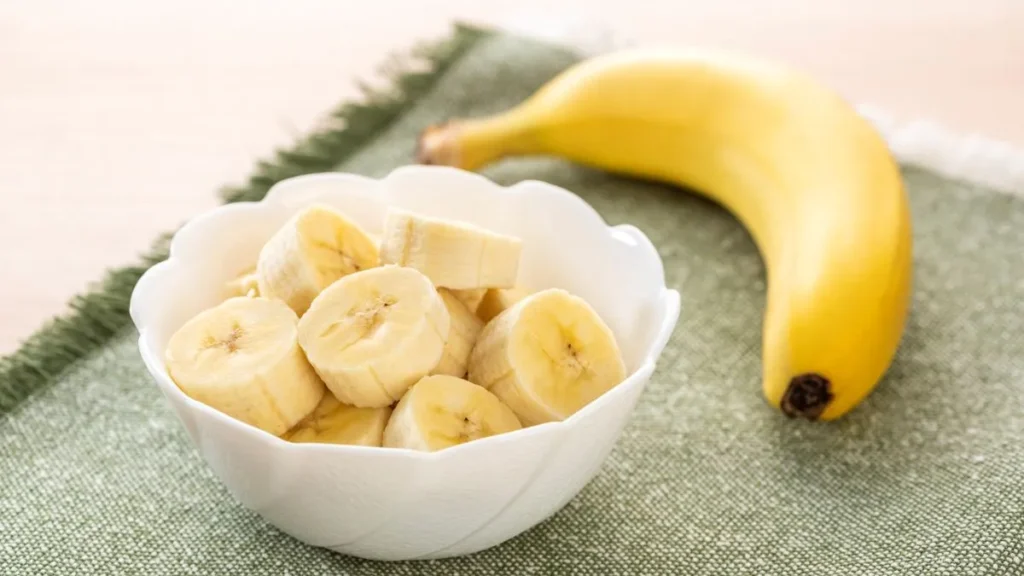
A banana, especially when it’s still a little green, is a great source of resistant starch. This healthy carbohydrate doesn’t get digested and can help improve blood sugar levels after meals and keep you feeling full longer.
“Slice it up and add it to cereal or oatmeal,” says Giovinazzo. “It adds natural sweetness, so you may not need extra sugar.”
Bananas are also high in potassium, making them a great choice for people with high blood pressure. Potassium helps lower blood pressure naturally.
Blueberries
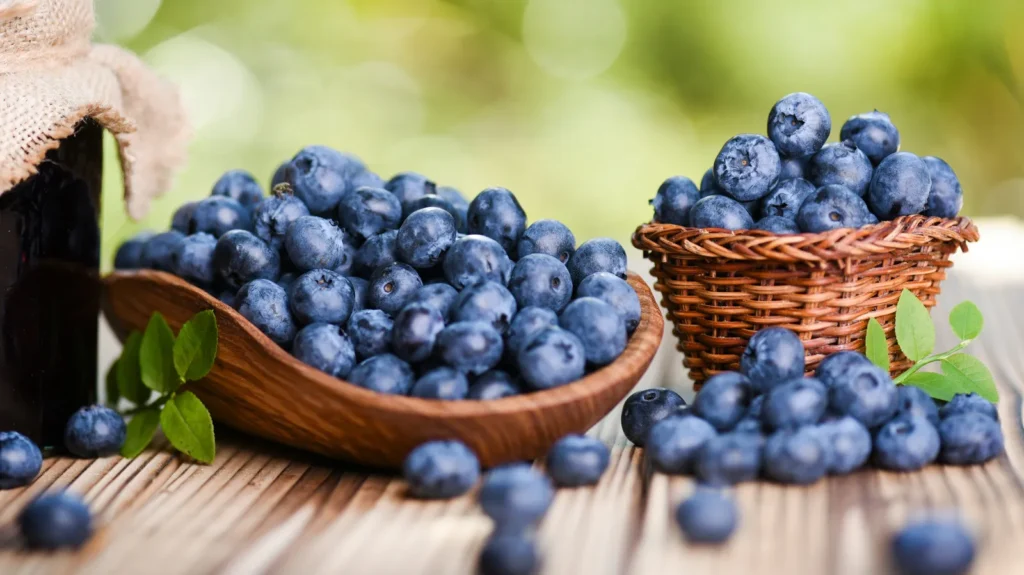
Blueberries, fresh or frozen, are small but packed with antioxidants. Eating them often can help your brain, especially memory and movement. They have a lot of anthocyanins, which are strong antioxidants. These help protect brain cells from damage and disease. Adding blueberries to your diet can keep your brain healthy. You can eat them as a snack, in smoothies, or on cereal. Blueberries are a tasty and healthy choice for your brain. Eating them regularly can support your memory and mental skills. They also help protect against brain problems. Blueberries are easy to add to your daily meals and are a great way to boost brain health.
Cantaloupe
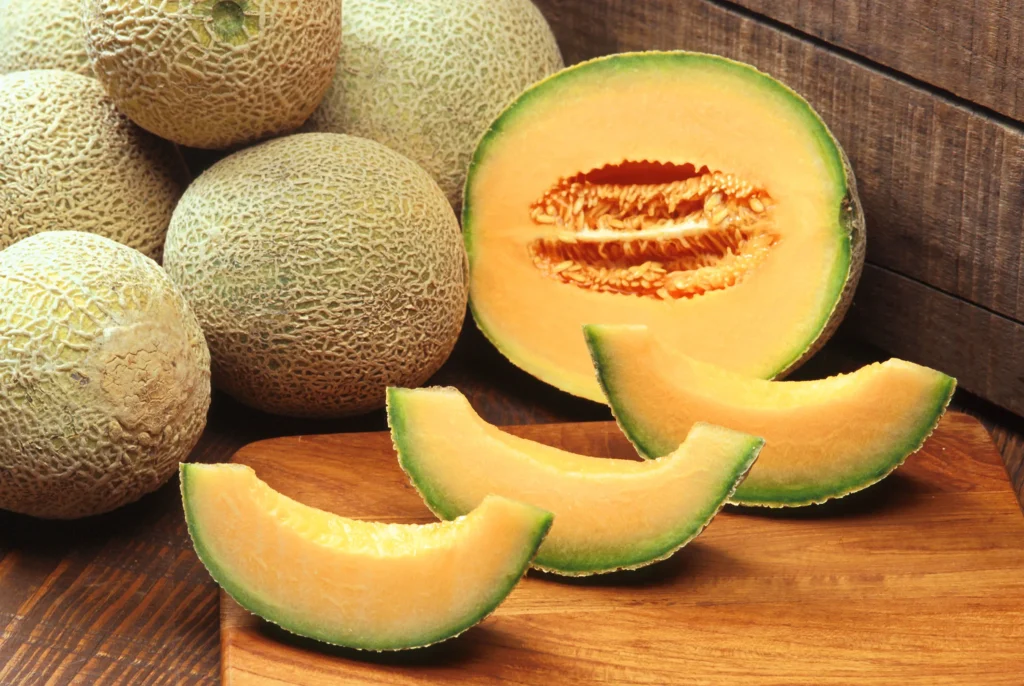
Any fruit is a good choice for breakfast, and cantaloupe is no exception, says Giovinazzo. A one-cup serving of cantaloupe gives you 11 milligrams of vitamin C and 232 micrograms of vitamin A. It’s also packed with water—about 90%—which helps keep you hydrated throughout the morning. The high water content in cantaloupe can also make you feel full and satisfied until lunchtime. It’s a sweet, refreshing fruit that provides both vitamins and hydration, making it a great addition to your breakfast.
Grapefruit
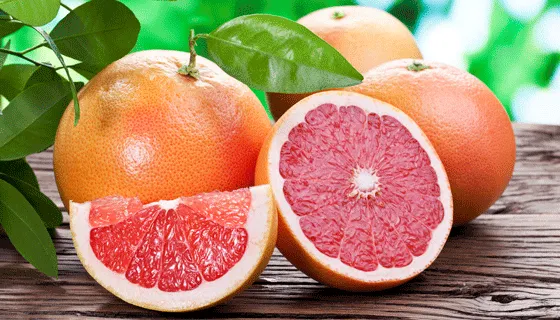
Grapefruit is a great choice for a healthy breakfast because it’s packed with important nutrients. It contains vitamins C and A, which help support your immune system and keep your skin healthy. It also has potassium, which is good for heart health, and lycopene, an antioxidant that can protect your cells. Grapefruit is also a good source of fiber, which aids digestion and helps you feel full. To make your breakfast more balanced, try pairing grapefruit with a protein like yogurt or an egg. This combination provides a mix of vitamins, fiber, and protein to keep you energized throughout the morning. However, if you take any medications, be sure to check with your doctor before eating grapefruit. Grapefruit and its juice can interfere with some prescription drugs, so it’s best to get advice from your healthcare provider.
Kiwi
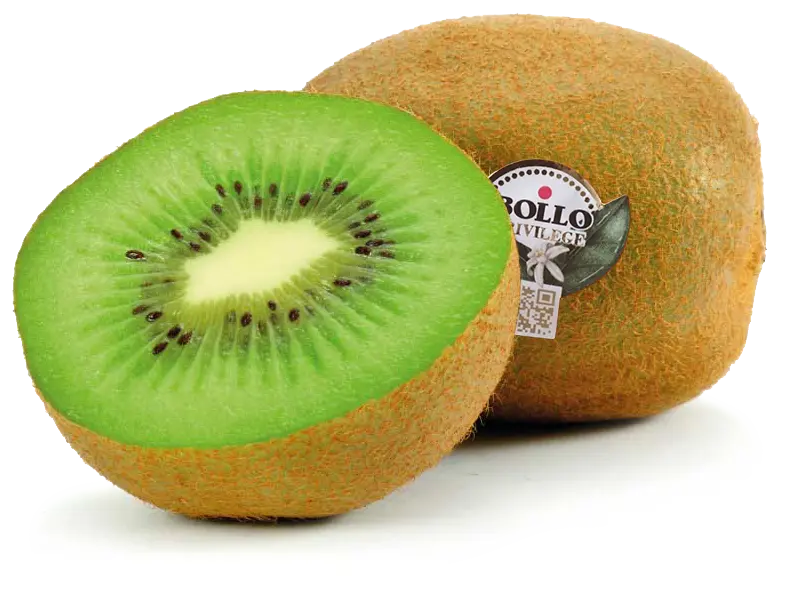
Kiwi is a small fruit that is full of good nutrients. It has 134 milligrams of vitamin C per cup, which helps keep you healthy. Kiwi also has a lot of potassium, good for your heart, and 5.4 grams of fiber, which helps with digestion. Kiwis taste a little tart, but if you like sweet flavors, you can mix them with strawberries and bananas. This makes a tasty fruit salad or smoothie. Combining kiwi with other fruits makes it not only sweet but also healthy with lots of vitamins and fiber.
Orange Juice

Fresh orange juice is a tasty drink, but you can make it healthier by choosing one that has extra vitamin D. Fortified orange juice gives you vitamin D, like fatty fish and milk. One cup has 100 international units (IUs) of vitamin D, which might help reduce cancer growth and inflammation, but we need more research to know for sure.
Just orange juice isn’t enough for breakfast. Pair it with something like a vegetable omelet or avocado toast for a full meal. The vitamin C in orange juice also helps your body take in iron, especially if you have iron deficiency anemia.
Raspberries
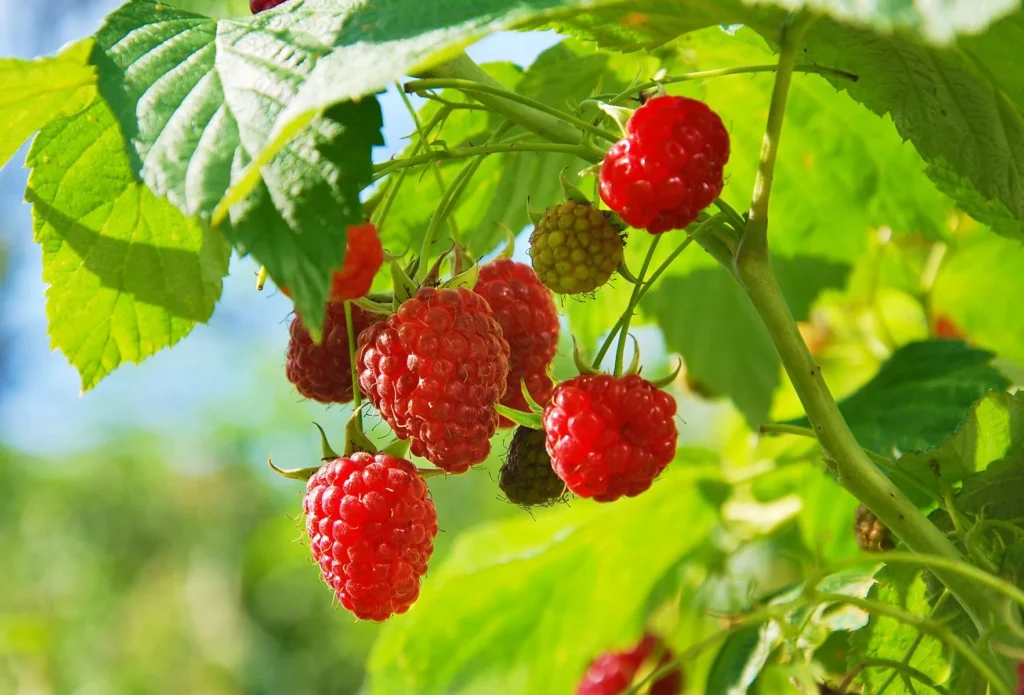
Raspberries are packed with antioxidants that might help fight cancer. They also have a lot of vitamin C, which is good for your health.
You can find fresh raspberries all year, and if they’re out of season, frozen ones work just as well and are cheaper.
Raspberries are easy to eat. You can add them to cereal, mix them into yogurt, or put them in a smoothie for a quick breakfast. They’re a tasty and healthy way to boost your diet.
Strawberries
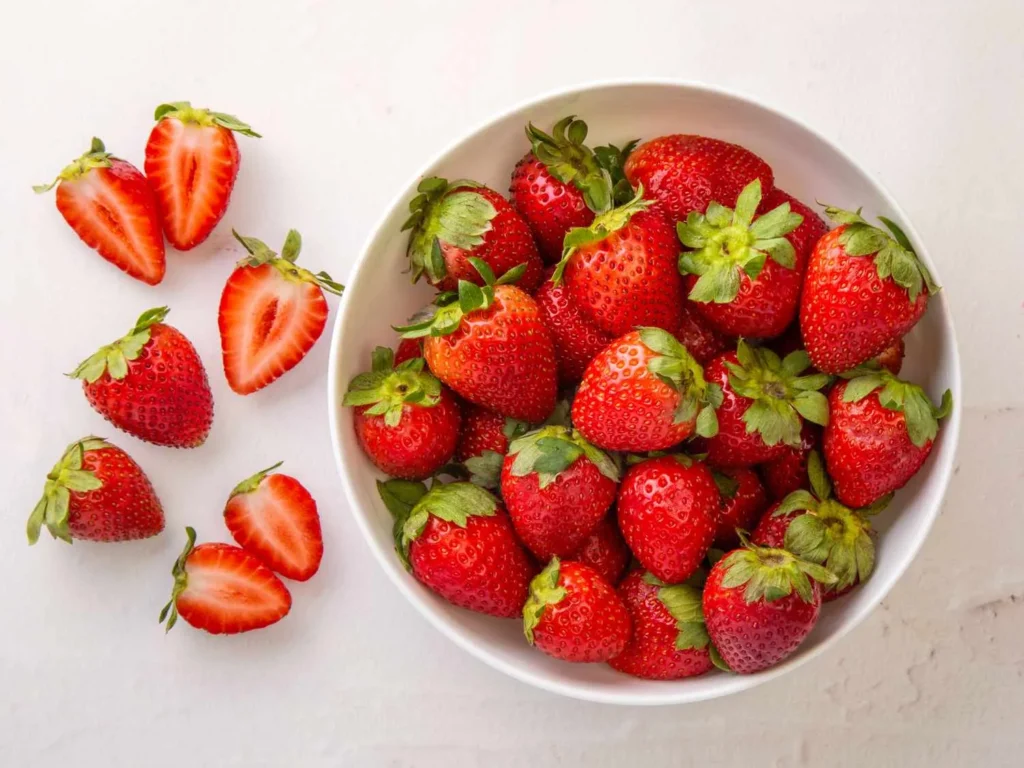
Berries are superfoods because they are full of antioxidants but low in calories, says Giovinazzo. Strawberries, like blueberries, have anthocyanins, which are good for your health. One cup of strawberries has 85 milligrams of vitamin C, which helps your immune system and skin. It also has three grams of fiber, which helps with digestion and keeps you full. The U.S. Department of Agriculture lists strawberries as a healthy food. Strawberries can also be good for your heart. Their antioxidants may help reduce inflammation and improve heart health. They could help improve blood flow and lower the risk of heart problems.
Watermelon
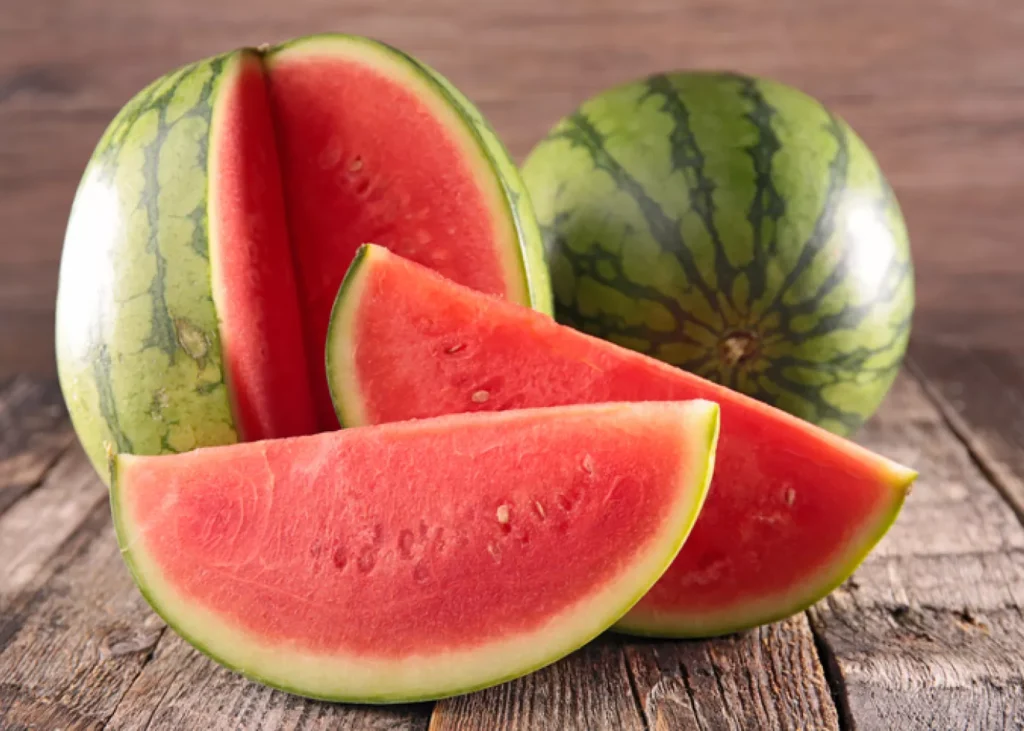
Watermelon is a great way to hydrate in the morning. One slice has about 9.2 ounces of water. It’s also full of lycopene, a nutrient in red fruits and veggies. Lycopene may help stop atherosclerosis, which is when the arteries harden. Atherosclerosis can lead to serious problems like stroke, high blood pressure, or heart attacks. Eating watermelon or drinking its juice is an easy way to get more lycopene. It can help keep your heart healthy by improving blood flow and reducing artery damage. Plus, it’s refreshing and delicious.
Low-Fat Dairy

Low-fat dairy is packed with essential nutrients like calcium, potassium, protein, and vitamin D. These nutrients work together to build and support strong bones. As you get older, they help reduce the risk of bone diseases such as osteoporosis, which can weaken bones. Plant-based milk and yogurt can be fortified with calcium, vitamin A, and vitamin D. These fortified alternatives help provide the same bone-supporting benefits as dairy products. Whether you prefer dairy or plant-based options, it’s important to get enough of these nutrients to support bone health as you age.
Greek Yogurt
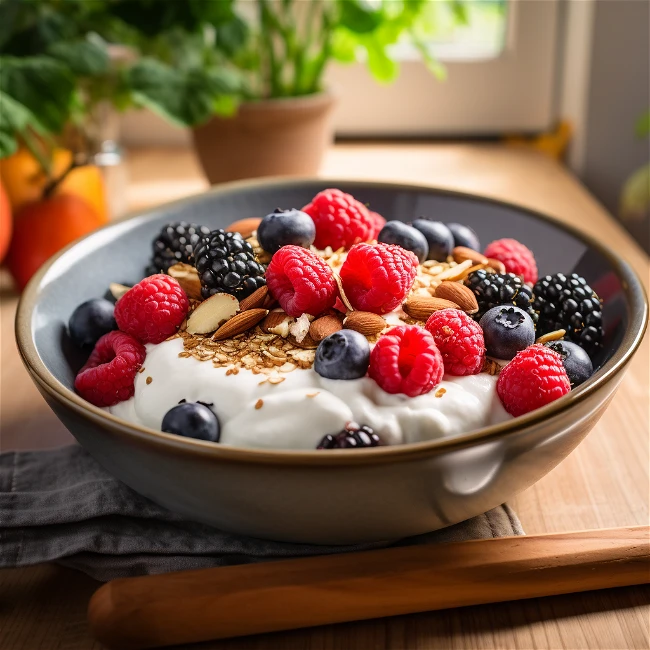
Greek yogurt is a great choice because it’s full of calcium and protein to keep you full in the morning. It also has probiotics that are good for your gut. Choose plain, nonfat, or low-fat Greek yogurt, and add fruit for sweetness and extra nutrition. You can also add nuts or nut butter for healthy fats. Greek yogurt is quick and easy, making it perfect for busy mornings. “I love Greek yogurt because it’s really quick and easy,” said Giovinazzo. “You can always take it with you when you leave.” It’s a simple, healthy snack you can enjoy anytime.
